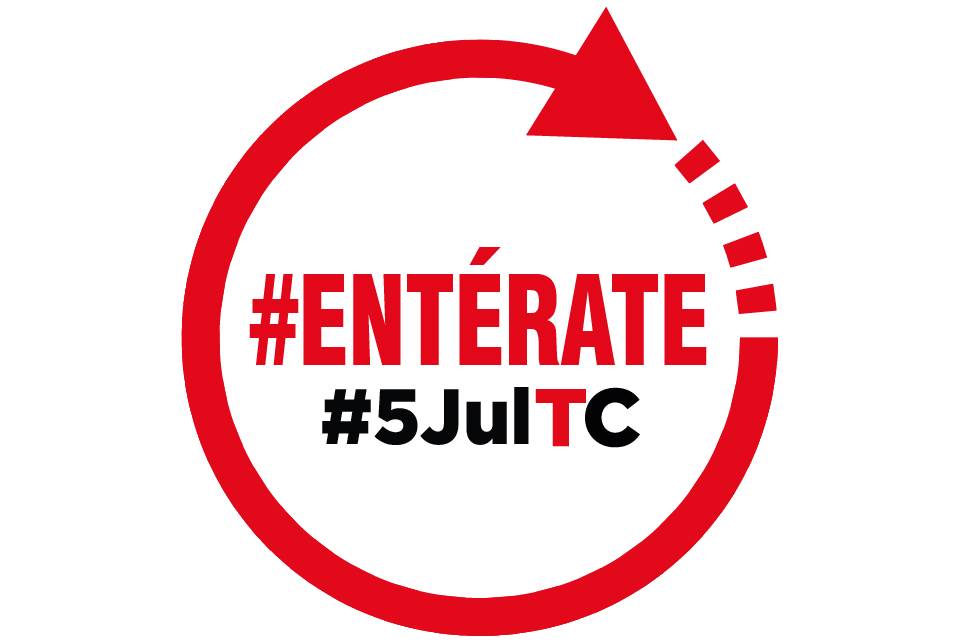The Ministry of Social Development (Mides) will put into practice as of January 1 a pilot plan for the implementation of the National Integrated Care System (SNIC) in educational centers. It will be through the provision of personal assistants to children with different types of disabilities in the place where they attend to be educated.
That is why special funds are requested in this Rendering of Accounts. The article proposes $11 million for this purpose for the coming year and $100 million in 2024 for its in-depth implementation.
In total, they will represent almost US$ 3 million at the current price for this destination. The first batch will go to the Personal Assistants program and the second to a “autonomy community promoters program” in educational centers. The objective: the care of children who suffer from dependency of any kind, and will have “a care perspective” so that they can carry out activities of daily life while attending their education.
It will mean a significant change in the plan, taking into account that until now the Care system is designed to be applied only in homes.
The new program will have a national scope, through agreements with state agencies and institutions. In particular, with the National Administration of Public Education (ANEP). The idea, they pointed out to The Observer from the Mides, is that in different schools there are people accredited in the provision of care.
Through the second axis, the ministry intends an emphasis on mental health with special priority in the situation of those released from the prison system. Official data indicates that an average of 6,500 people leave prison each year. The premise is to attend to the causes that originate that, in many cases, those released have no other option than to sleep on the street.
It is proposed to be the first stage of a short- and medium-term strategy to address this problem. The first step was a reinforcement in the expected hours of attention and the places available to receive people in this situation.
For that, the Mides will receive a game of $128 million this year and $354 million next year. Together, they represent about US$ 12 million at current exchange rates. They will be allocated to “attention to situations of special vulnerability” through the Mental Health Promotion Program and attention to the problematic consumption of people who live or spend the night on the street or who have just been released from prison. The declared objective is to promote the implementation of boarding devices.
Since last year the Mides has under its orbit the National Directorate of the Liberated (Dinali), which until then belonged to the Ministry of the Interior. It was the first time that the secretariat landed institutionally in the prison system. Now, the Rendering of Accounts proposes the formal creation of a position of “national director of Support for the Released.” It is a distribution that, shortly, will change in addition to its name. In the ministry they seek a new denomination, considering that the term “released” is pejorative.
Minister Martín Lema presented in Parliament in April the results of a census carried out in 2020 of citizens living on the street. There, 86% declared consuming psychoactive substances. In turn, the latest official data indicates that 40% of prisoners had some type of mental illness last year. Half of the cases were related to drug use.
Food Network
The third axis of the ministry for the coming year will continue to be the strengthening of the food system. For that, Accountability includes $155 million for this year and $260 million for 2024, allocated to the Food Security program of the National Food Institute. Together they are equivalent to just over US$10 million at current exchange rates.
In the Mides it was said to The Observer that the request does not respond to a greater need for assistance. On the contrary. The ministry confirmed that “there are data” indicating an improvement in the food situation, which translates into a “low demand” through the different ways of providing food for people who had been requiring state assistance to eat.
Before the Parliament, the portfolio will emphasize that the budget for this destination responds to the need to attend to “structural aspects” that have been coming for many years.
The main one is relative to the number of users registered in the National Canteen System, updated as of May 31. According to the Mides report, accessed by El Observador, in the first five months of this year 84,631 people went to eat at those places. In the same period 2021, there were 93,023. There are 8,392 fewer borrowers throughout the country.
Another of the inputs goes through the number of dishes served by the National Army at the request of the municipalities throughout the country. Between January and May of this year there were 32,490, compared to 137,950 in the same period of the previous year. There were 105,460 fewer meals.
Although it is admitted that part of these people may be obtaining help to feed themselves by other means, in the ministry they reason that they are people who used these benefits before, that they are still available, and that they no longer do so. “That there is less demand is not something subjective, they are data,” they indicated from the portfolio.
Mides’ incremental request is completed with just over $20 million that will go to finance a “special compensation for meeting specific conditions” for personnel dedicated to the Social Assistance and Integration Network, which in the past accounted for 87% of budget execution of the ministry. Another 9% was allocated to the SNIC.
In total, for this Rendering of Accounts, it proposes the granting of resources for US$ 26 million over the next two years for all these purposes.







